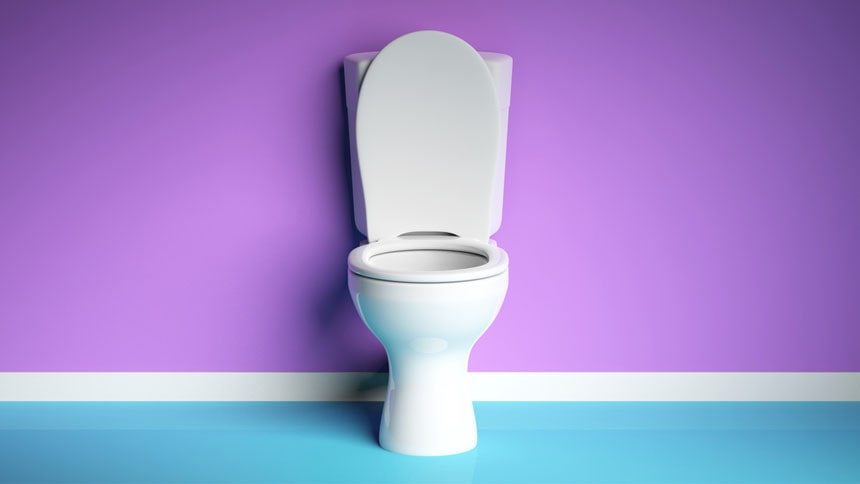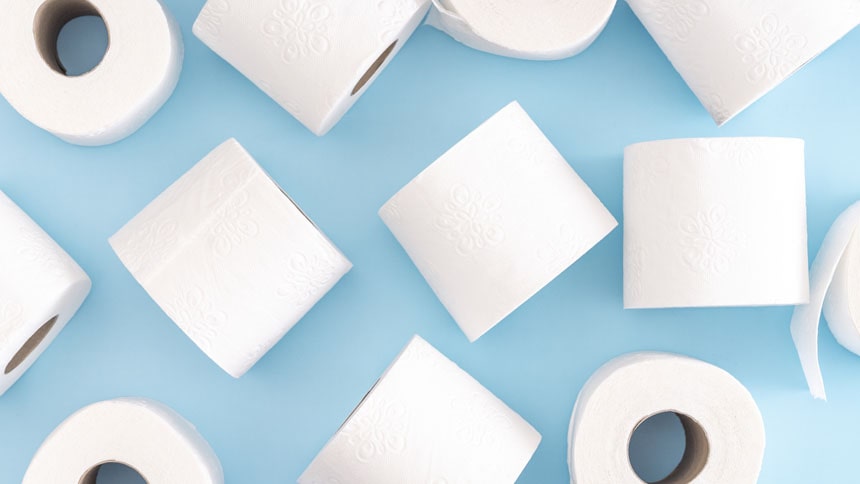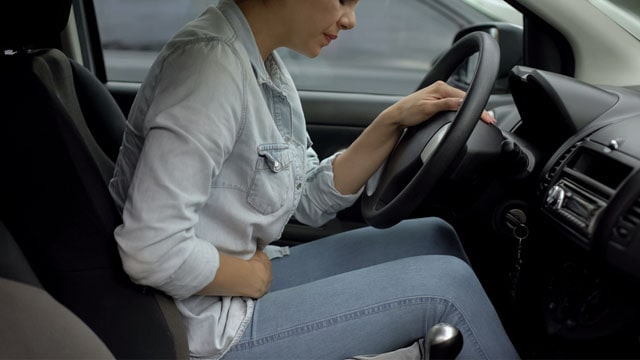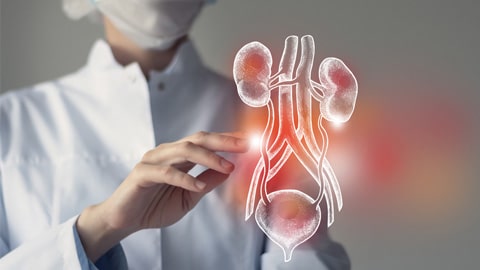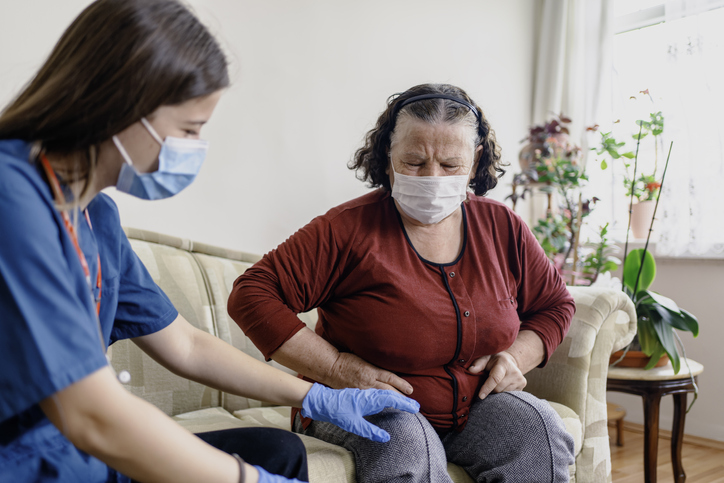Are you pregnant and noticed you’ve started leaking pee (urine)? Or perhaps it's been happening since you had your baby? It may not be something that other parents tell you about, but it’s a common problem. In fact, a review of scientific studies found that about a third of women notice some leaks in the 3 months after giving birth.
Leaking pee (urinary incontinence) at this time may feel particularly challenging to deal with. After all, you’re already coping with other changes in your body. And you may be living with leaks just as you’re getting used to being a new mum, or adjusting to having a baby in the family while also looking after other young children.
You may find incontinence embarrassing, as well as uncomfortable. According to figures from the parenthood charity NCT, a third of women affected feel embarrassed about mentioning it to their partners – and more than a third say they feel uncomfortable talking to a doctor or midwife. But it isn’t something you should stay quiet about, or put up with.
The good news is that urinary incontinence caused by pregnancy and birth is often temporary and gets better by itself. There are also things you can do to help yourself – and your doctor or midwife will have solutions that can really make a difference. So don’t let it get in the way of your life – get the support you deserve.
What causes urinary incontinence in pregnancy?
Stress incontinence is the most common type of urinary incontinence during pregnancy. It doesn’t involve emotional stress, but rather physical stress or pressure. Here’s why it happens:
- your growing baby is heavy – as your womb (uterus) expands and your baby gets bigger and heavier, your bladder and the muscles that support your bladder, vagina and bottom (pelvic floor muscles) are put under increasing pressure, which can also weaken them. This is why leaks are more likely in your third trimester
- hormone changes relax your muscles – an increase in the hormones progesterone and relaxin help your body make space for your baby and prepare for the birth. But they can also affect the muscle tone of your bladder and the ring of muscle around the tube that takes pee out of your body (urethra), called the urethral sphincter
All this means that when your muscles are put under sudden extra pressure – if you cough, sneeze or laugh, for example – the pressure inside your bladder is too much and the urethral sphincter opens, letting out some pee.
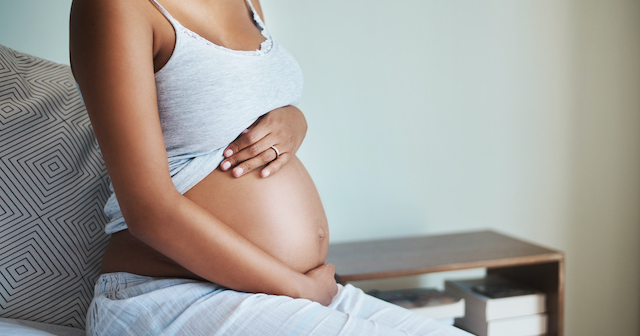
What causes urinary incontinence after birth?
Like pregnancy, giving birth puts pressure on your pelvic floor muscles, and may weaken or damage them. Sometimes, the urethral sphincter can also be damaged during childbirth.
Certain things increase your risk of leaking pee after giving birth, including:
- assisted delivery – if forceps or a ventouse suction cup are used to help you deliver your baby, this can damage your pelvic floor muscles
- long or difficult delivery – this puts more pressure on your pelvic floor
- incontinence during pregnancy – especially in the first or second trimester. It’s thought this could be because the neck of the bladder sometimes becomes more mobile in pregnancy. Another reason is that if your pelvic floor muscles are weakened in pregnancy, you’re more likely to have problems after the birth
- previous pregnancies – if you’ve been pregnant before, your risk of leaks after birth is higher
- pelvic organ prolapse – this is when 1 or more of your pelvic organs slips down into your vagina during delivery, which can put pressure on your bladder. It’s more likely if you have a long, difficult delivery, a large baby or a multiple birth (such as twins)
- epidural or spinal block – if you have these types of pain relief during the birth you may get leaks for a few days afterwards, as you may not know when you need to pee. If you have a catheter with an epidural you may find it harder to control your pee, but this usually corrects itself after a few days
Does having a caesarean section (C-section) lower the risk?
The evidence is mixed. Some research suggests that, compared with a caesarean section, vaginal delivery doubles your risk of having leaks after the birth. But a C-section doesn’t guarantee you won’t have problems.
One study found it only lowers the risk if all babies are delivered this way – and even then, 40% of the women who’d only had C-sections still reported leaks. And caesareans may not give older women any protection against incontinence. Another study found a planned C-section reduced the risk of incontinence afterwards in women with twin pregnancies – but more research is needed.
There are lots of things to consider when you’re deciding whether to have a C-section – not just the risk of leaks. So make sure you talk it all through with your doctor or midwife.
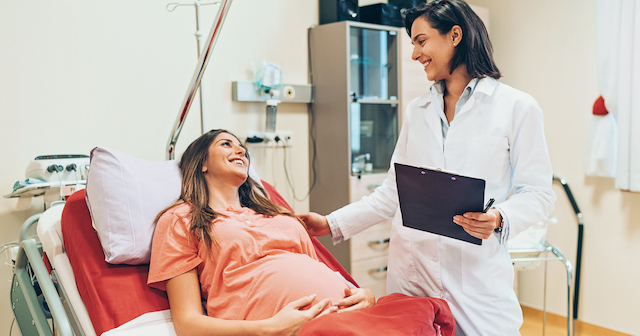
Number-1 tip for preventing leaks during and after pregnancy
Doing pelvic floor exercises can help strengthen your pelvic floor muscles to protect against leaks. It’s a good idea to do them whatever your age, whether or not you’re currently having issues, as they may help you avoid problems later.
They’re safe – and recommended – during pregnancy, so make sure you start doing them early on. If you have any concerns or you aren’t sure if you’re doing them correctly, check with your midwife. Read about how to do pelvic floor exercises.
Other general lifestyle changes can also help you avoid leaks during and after pregnancy – read about self-care measures for urinary incontinence.
Doctor’s tip
By Dr Ann Nainan, Healthily Clinical Content Reviewer
“Any incontinence after giving birth usually improves over time, but you can start doing pelvic floor exercises as soon as you feel ready. Remember that, as with all muscles, it takes time to see results. Try to do the exercises a couple of times a day – you could link them to something you already do, such as making a cup of tea or going up the stairs, to get you into the habit.”
When to see a doctor
It’s normal to get a few leaks during pregnancy and after giving birth. And there are incontinence products that can help you manage the problem until it settles down. But if you’re still having leaks more than 6 weeks after the birth, or it’s getting in the way of your life, talk to your doctor.
They’ll ask you for details about your symptoms and may refer you for tests to work out what’s going on. They may also want to check for other possible issues, such as a urinary tract infection (UTI).
UTIs can usually be easily treated with antibiotics. You should see your doctor or midwife as soon as possible if you have symptoms of a UTI, such as:
- suddenly needing to pee very urgently or more often than usual
- a burning sensation or pain when you pee
- strong-smelling pee
- cloudy pee or blood in your pee
- pain in your lower tummy and/or lower back
- generally feeling tired and unwell
- a high temperature (fever)
Read more about when to see a doctor about urinary incontinence – including when your symptoms suggest you should get urgent help. You should get emergency medical attention if you have very bad tummy pain or a high temperature (fever), you’re suddenly unable to pee, or you suddenly can’t control when you pee or poo.
How your doctor can help
The first treatment your doctor will recommend is usually a course of supervised pelvic floor training, from a physiotherapist who specialises in women’s health.
If you need more help, there are other non-surgical treatments for urinary incontinence. Or in some cases, you may need surgery or a procedure to treat your problem. There are lots of options, so you don’t need to put up with leaks.
If you’ve had a pelvic organ prolapse after giving birth, treatment is usually similar, including pelvic floor exercises and losing excess weight. In more serious cases, surgery may be an option. Your doctor will recommend next steps, based on what’s right for you. Read more about pelvic organ prolapse treatment.
Your health questions answered
I’ve started getting leaks a few years after having a baby – could it be linked to my pregnancy?
“Sometimes, leaks can start happening months or even years after giving birth. But there are lots of things that can contribute to your risk of leaks – pregnancy is just 1 of them. There are also things you can do to lower your long-term risk, such as keeping a healthy weight and doing pelvic floor exercises. Read more about preventing urinary incontinence.”



